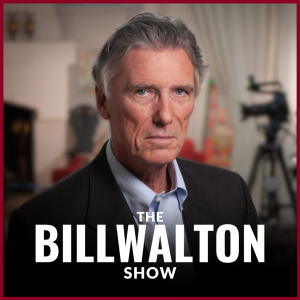
Episode 168: "No Rights, No Games" with Chen Guangcheng, Reggie Littlejohn and Yaxue Cao
 2022-01-18
2022-01-18
The 2022 winter Olympics in Beijing China opens a few weeks from now, and the International Olympic Committee's 2015 decision to have China host the event looks ever more dubious.
Since then, it's become obvious to most observers that China, never a champion of human rights, is growing ever more oppressive. It’s Communist Party leadership has become even more deeply committed to preserving its monopoly on power through state sponsored repression, surveillance, and indoctrination.
Witness its takeover of Hong Kong, the internment of Muslims in Xinjiang, the disappearance of tennis star Peng Shuai, its totalitarian social credit system, the Covid coverup and mounting threats to democratic Taiwan.
So why are democracies from all over the world moving ahead to send their athletes to a country so antithetical to their values?
My guests for this episode provide a first hand and stark assessment as to why they should not.
Chen Guangcheng, a Chinese civil rights lawyer, was imprisoned and under house arrest by the Chinese government for seven years for his human rights activism. Since escaping to America, he has remained a persistent voice for freedom, human dignity, and the rule of law in his native country.
Reggie Littlejohn, who as the president of Women’s Rights Without Frontiers, has spent years campaigning against China’s forced abortion policies.
and
Yaxue Cao, who grew up in northern China during the Cultural Revolution, and went to college at Peking University in Beijing. She founded DC-based ChinaChange.org to inform the world about human rights, rule of law, and civil society in China - aspects of China’s political landscape that are the most censored and least understood.
China claims that the Chinese people “experience a broad, thorough and true democracy” and the China’s National People’s Congress “guarantees that the people are masters.”
To this Guangcheng responds “the Chinese people have never had a free election, the National People’s Congress is made up entirely of the party’s handpicked officials and the subject of democracy has been banned from kindergarten to university classrooms since 2013.”
Surveillance and social control are pervasive.
Yaxue Cao explains, “If you speak any dissent on the internet, your accounts will be suspended or deleted. And not only that, policemen will quickly be able to identify who you are, and find you offline, and threaten you, sometimes take you away to the detention center.”
When the Olympic athletes go to China in a few weeks, they are entering into this surveillance culture.
“They need to understand their movements are going to be tracked, all of their social media posts,” says Reggie. “What if an athlete posts something that is very critical of the government? What's going to happen then?”
It’s not just governments, it’s also the major multinational corporations, who are looking the other way.
“The Chinese Communist Party is very calculating and has used China’s market, the world’s second largest, as an enticement,” says Guangcheng.
With billions at stake, the multinationals do not want to risk offending the CCP.
These are but a fraction of the endless issues surrounding this Olympics. Why it’s going ahead is not a mystery, but it is wrong.
Listen in as my guests, with first hand experience of the CCP’s iron hand, talk about what’s at stake.
More Episodes
Create your
podcast in
minutes
- Full-featured podcast site
- Unlimited storage and bandwidth
- Comprehensive podcast stats
- Distribute to Apple Podcasts, Spotify, and more
- Make money with your podcast
It is Free
- Privacy Policy
- Cookie Policy
- Terms of Use
- Consent Preferences
- Copyright © 2015-2024 Podbean.com





